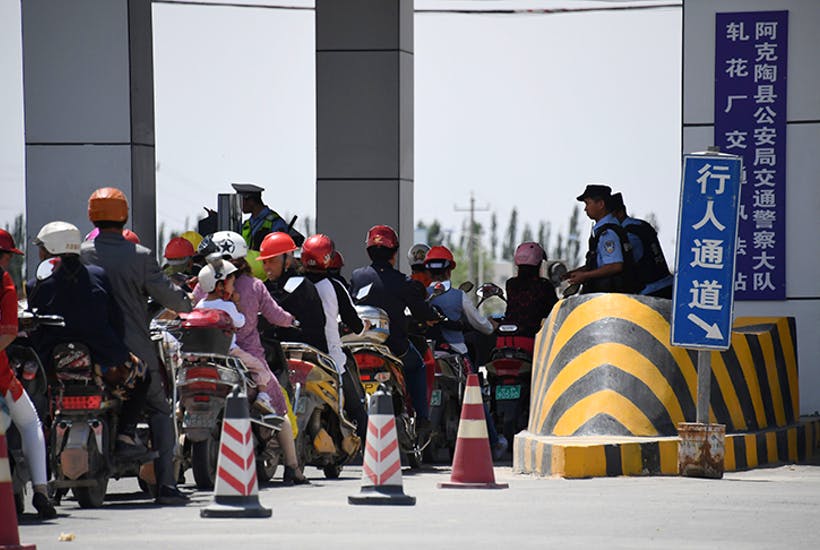Vegetable-seller Kairat Samarkhan didn’t know why he had been summoned to the police station. ‘I had to empty my pockets and hand over my belt and laces. Then they started to ask questions,’ he says. After days of interrogation, during which he was hardly allowed to sleep, officers pulled a sack over his head and drove him to a camp near the city of Altai. Samarkhan, a Muslim Kazakh, told me about his experience in the camp: ‘Every day, we had to renounce the Muslim faith and confirm that we respect the laws of China. Before every meal, we chorused: “Long live Xi Jinping!” ’
In the past two years China has — almost unnoticed by others — built the largest network of internment camps in the world. There are more than 1,000 in the western region of Xinjiang in which roughly a million Muslims have been detained with the official aim of eradicating ‘the virus in their thinking’. The Chinese government claims that the camps aren’t cruel, simply educational, but Samarkhan was tortured and eventually tried to kill himself. ‘I ran against the wall with my head. Again and again. I did not want to live any more.’ He was then taken to a hospital and eventually released, whereupon he fled to Kazakhstan.
It’s impossible to visit an actual camp unless you’re part of a state-sanctioned press visit, but I recently managed to travel undercover to Xinjiang and witnessed — even outside the camps — a police and surveillance state that seems like a hi-tech version of Mao’s Cultural Revolution. Every street and alley, even in the smallest villages, is monitored by surveillance cameras, many equipped with facial recognition technology. Department stores, restaurants and most other public buildings are protected by security guards carrying large clubs. There are newly built police stations every few hundred yards.







Comments
Join the debate for just £1 a month
Be part of the conversation with other Spectator readers by getting your first three months for £3.
UNLOCK ACCESS Just £1 a monthAlready a subscriber? Log in